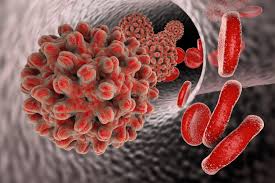In Nigeria, the battle against hepatitis B faces a new challenge as corrupt practices in government health facilities hinder access to affordable vaccination. Residents like Mr. Ralph and Maryam in Abuja are left frustrated and helpless in the face of exorbitant fees for essential healthcare services.
Mr. Ralph expressed his disbelief at the inflated costs, stating, “I couldn’t believe my eyes when I saw the bill,” Mr Ralph lamented. ” I was told test was supposed to be N1000 but I was charged N3000 and afterwards I was asked to pay N9000 for each of the vaccines something was I told was free in government health facilities.
This is an outrageous amount for a vaccine alone. They are just taking advantage of our desperation.”
Maryam, equally dismayed, shared her experience, highlighting the system’s exploitation instead of assistance. She said, “I did a research, and understood the consequences of not getting vaccinated. I came to do the test and know my status but on coming to the hospital with N1000 I was told is N3500 and I couldn’t do the test. It’s frustrating that the system is exploiting us instead of helping us.”
In an interview with Africa Health Report, (AHR), Dr. Halima Abdullahi, a hepatologist, expressed her concerns about the rising prevalence of hepatitis B in Nigeria and the detrimental effects of such exploitative measures by the healthcare system.
“Hepatitis B is a major public health problem in Nigeria,” Dr. Abdullahi explained. “With a prevalence rate of 8-20%, nearly 19 million Nigerians are at risk of contracting the virus.
Access to affordable vaccination is fundamental in preventing transmission and reducing the burden of this disease.”
According to the World Health Organization (WHO), globally, hepatitis is a leading infectious cause of death, with Nigeria estimating around 20 million people chronically infected with hepatitis B and C.
As the world commemorates the 2024 World Hepatitis Day with the theme “Hepatitis Can’t Wait” underscores the urgency of addressing these challenges.
To combat this pressing issue, stringent oversight and accountability in healthcare facilities are crucial to combat corruption and ensure fair pricing for vaccines and tests. Public health campaigns must be intensified to raise awareness about hepatitis B and the importance of vaccination.
Partnerships with international organizations and pharmaceutical companies can help negotiate affordable vaccine prices, ensuring accessibility for all Nigerians.
Governments at all levels should prioritize funding for hepatitis B vaccination programs, recognizing the long-term benefits of disease prevention.
On this Hepatitis Day, a united effort is needed to demand justice and affordable healthcare for all Nigerians. By tackling corruption, increasing awareness, and providing support to those affected by hepatitis B, the nation can work towards eradicating this silent epidemic and securing a healthier future for all.



